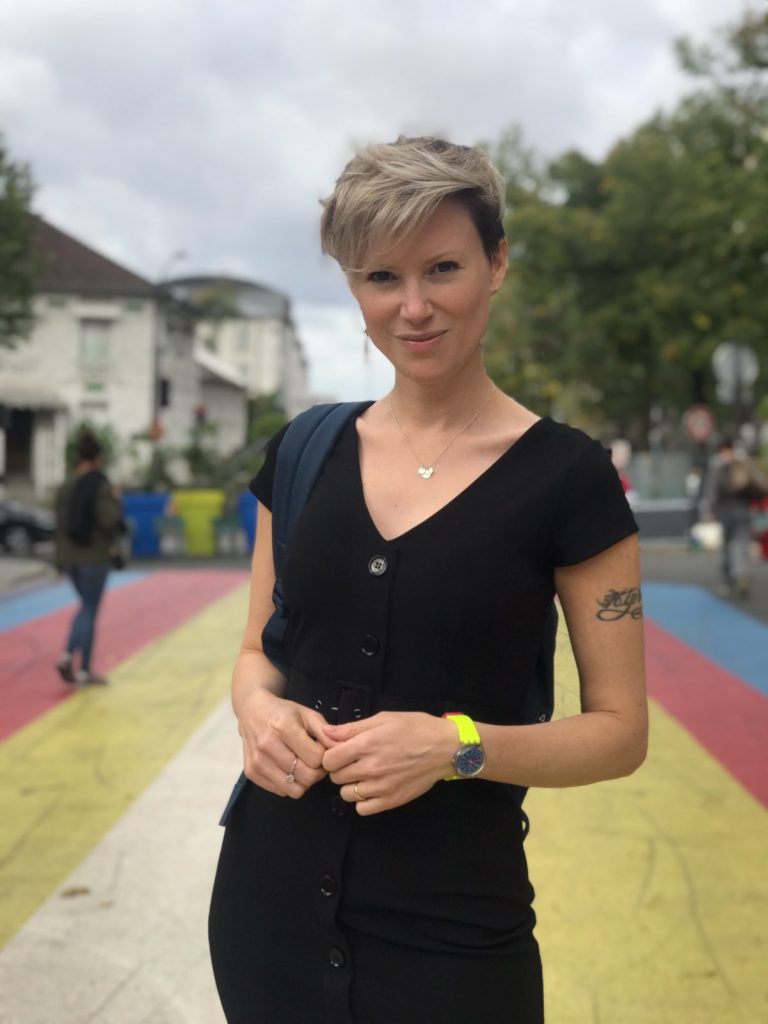 One of my fondest early career memories was receiving my very first box of printed business cards.
One of my fondest early career memories was receiving my very first box of printed business cards.
I was officially a working, professional woman, and that card, with my name, the name of my company, and my job title was a tangible representation of who I was in the world. And yet, by the time I got into my 30’s, and joined the pragmatic tech company Namics, my title mattered less and less to me. I suppose this was because I was more mature, had achieved success, and had something in the workplace I didn’t when I was younger: confidence.
My title at Namics was “Unit Manager.” Sexy, I know. But I was really good at my job, and my co-workers knew it. So who cared what the title was? The whole idea of a title seemed petty, unimportant even. Then came a turning point. As it seems all companies do these days, the company went through a restructuring. My job made it through the transition, but what didn’t was our “business units.” You can’t be a Unit Manager if there aren’t any units. Not wanting my career to be as redundant as the job title I thought so little of, I had a yearly coaching meeting with the CEO, who asked me what I thought we should do about my title. Up until that point, the press and my colleagues had been affectionately calling me “Direktorka,” (technically Bosnian for “Director,”) and it had such a fun comic book feel to it that it I kind of enjoyed it. As such, I confessed to the CEO that I really didn’t care what they called me. I was busy and immersed in my job, so it really wasn’t important. In a role like mine, to succeed, you must live and breathe the company spirit, and I did. I took it with me everywhere I went, from kids’ birthday parties to taxicabs to the hairdresser. I completely absorbed the essence of the people and culture of my company and became an evangelist for the brand and its awesomeness. When you’re that invested in your work, your title feels like the least important thing about it. I was a long way from that young woman who had her breath taken away by seeing her name and title on a business card. I should also maybe mention that in my high school superlatives list I was named “most free spirited,” so what did that girl care about titles for?
So, I went through the rest of my career at Namics with my old title. Unit Manager of the house without units I would be. And that was all well and good until it was time to search for a job in France. I was confident that I would at least have replies to my applications and yet, after several months of online job-hunting, I had a big pile of nothing to show for it. Why didn’t anyone care? I was applying for exactly the roles I had experience doing. I knew I was great for many of them, I had so much experience and so many successes, yet no one else seemed to agree, or worse, to care. I was in a new country with a new culture and all of a sudden none of my experience seemed to matter at all. I felt completely lost in space.
Then, I decided to dust myself off and get back out there. I asked for introductions to people in my industry and picked their brains for any info I could get. I tried to understand the market, the culture and the needs and challenges startups were facing. Listening to people’s experiences here in France helped me regain what I had lost: my confidence. It confirmed that I did have something to contribute and I knew exactly what it was. The problem was that no one else knew about it because my title on my resume didn’t say a thing.
I was naive to think that everyone would see how great I was without a label to qualify it for them. I also couldn’t help thinking how unlikely it was that a man would make that mistake. It takes courage to stand up for what you’re worth, to own your title, and that’s not something that women are encouraged enough to do in the professional world.
People making hiring decisions for startups don’t have time to read into a candidate’s skills. They need to be told. As a woman fluent in multiple languages, I should have seen I wasn’t presenting myself in a language they could understand. I looked back on the work I did, acknowledged my role in the success of the company and claimed the title I’d earned. Once I wrote “Head of People” on my LinkedIn profile, companies took interest. All they had needed was a translation.
I’m still a free spirit that works and lives beyond a title, just a little more savvy of what that title communicates. When we work so hard to bring value to the companies we represent, we deserve to claim our titles and to wear them like badges of honor.
There is nothing petty or unimportant about that.
 About the author
About the author
Catherine Ferrary-Simon is Head of Talent & Culture at Critizr and has more than a decade of experience in tech project management, operations, tech recruitment and people management behind her. She has helped multiple startups attract top talent, and fostered happy, diverse teams in tech. Her reverse headhunting approach prioritizes employer branding and corporate culture so that the best talent finds the right home. Her passion for employee happiness is infectious. She loves to design workshops and training sessions with the goals of boosting productivity and enthusiasm at work, and is happy to talk your ear off about it in several different languages.
Catherine is also a huge jazz fan, former drummer and serial concert goer, on top of being the mother of four small monsters. The concept of “free time” eludes her.
If you are a job seeker or someone looking to boost their career, then WeAreTheCity has thousands of free career-related articles. From interview tips, CV advice to training and working from home, you can find all our career advice articles here.





